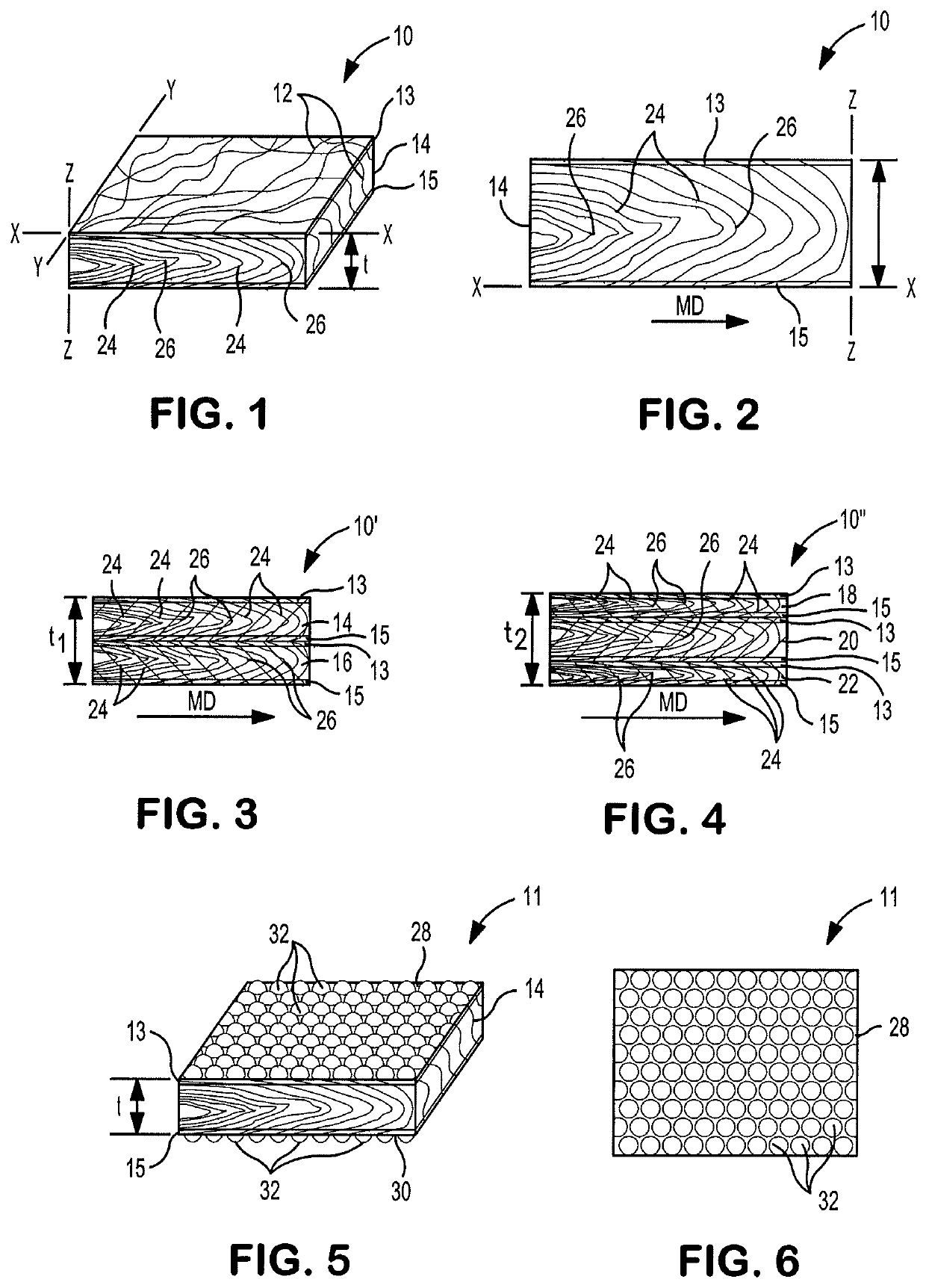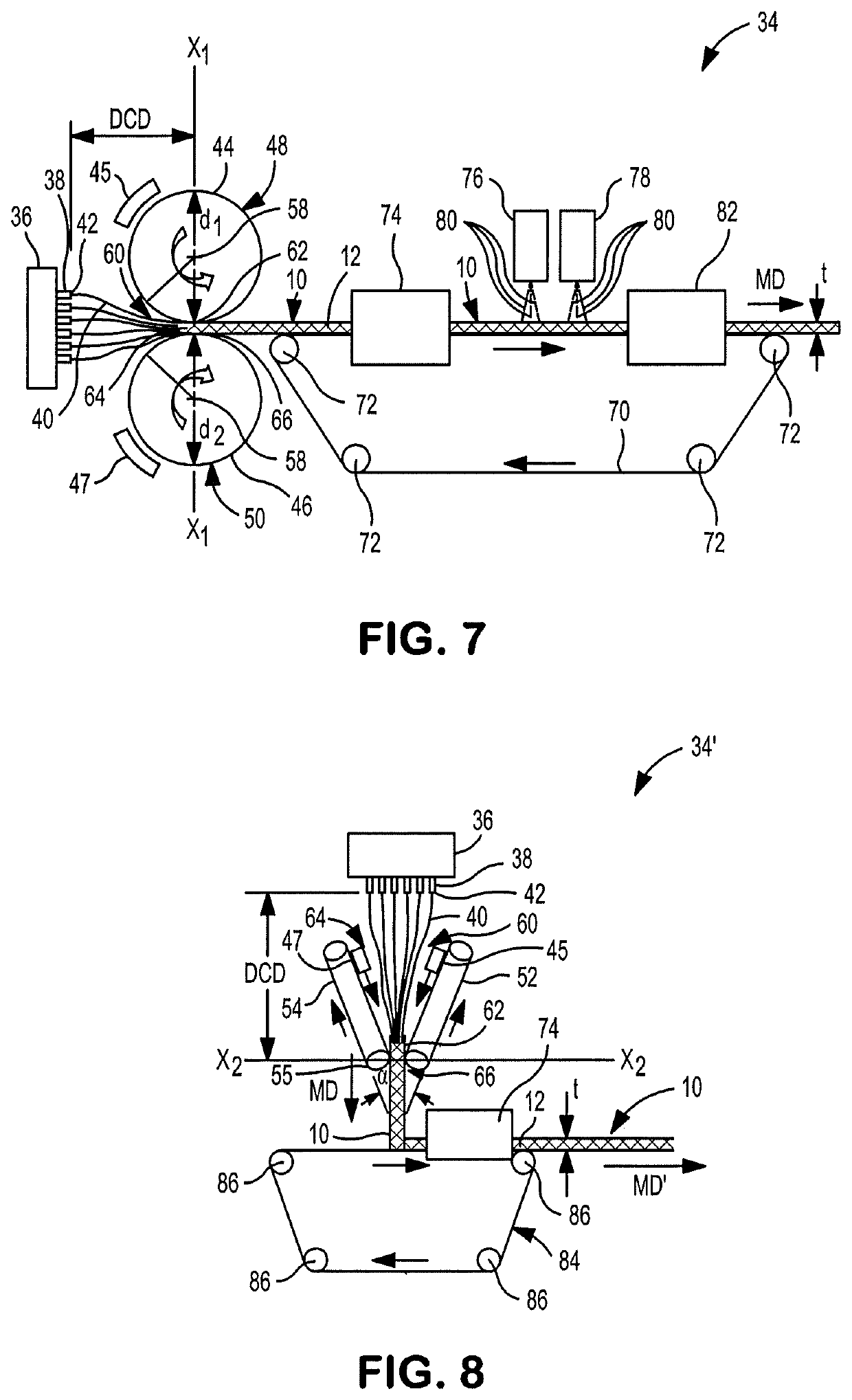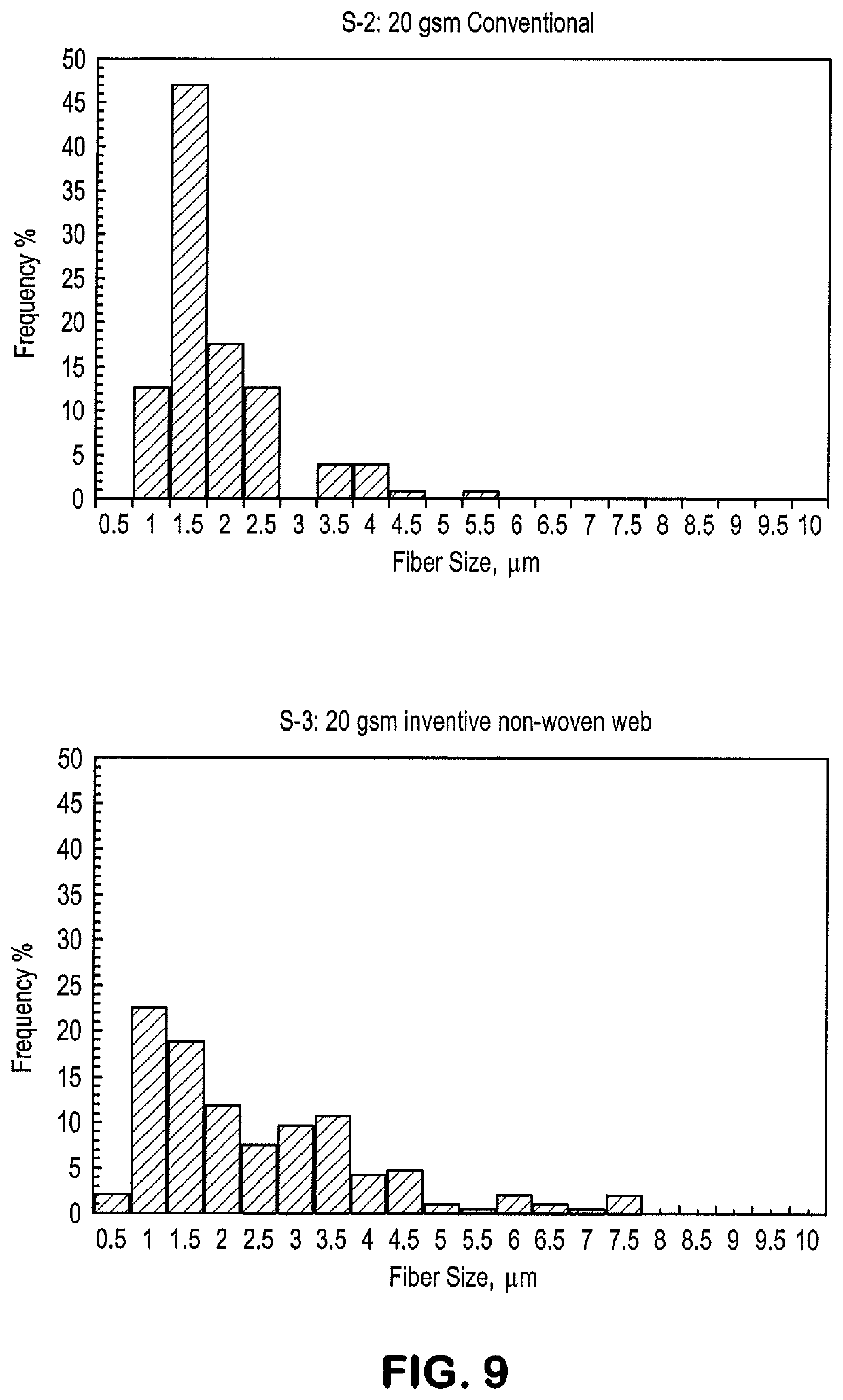Process for forming a high loft, nonwoven web exhibiting excellent recovery
a technology of nonwoven webs and high lofts, applied in the field of process forming a high loft, nonwoven webs exhibiting excellent recovery, can solve the problems of affecting the quality of finished webs, unable to recover to their original thickness, and webs tending to become hard and/or stiff, and achieve excellent recovery
- Summary
- Abstract
- Description
- Claims
- Application Information
AI Technical Summary
Benefits of technology
Problems solved by technology
Method used
Image
Examples
example 1
[0052]In this example, we were looking at the effect of spinning technology on web properties. Three (3) different non-woven webs were made using polypropylene resin. All three (3) had the same basis weight but each was spun using a different spinnerette design and different processing conditions. As shown in Table 1, sample S-1 was produced using a Biax multi-row spinnerette design that did not have air insulation inserts or an air shrouding curtain surrounding the periphery of the nozzles 38. Sample S-2 was produced using a conventional meltblown process which had only one line of nozzles along with inclined air jets. Sample S-3 was produced using the inventive process.
[0053]The sample S-3 achieved almost double the machine direction (MD) tensile strength as compared to sample S-1 or sample S-2. Also, one will notice that the fiber diameter of sample S-3 was slightly larger than the fiber diameter of the conventional meltblown sample S-2. The primary reason for this difference in ...
example 2
[0060]In this second example, we were comparing a sample produced by the inventive process S-5 to a sample produced by a conventional meltblown process S-4, and to a sample produced by a conventional spunbond process S-6. Three (3) samples were made and each had the same basis weight. As shown in Table 2, the properties of sample S-5 were about half-way between the properties of the conventional meltblown web S-4 and the conventional spunbond web S-6. Table 2 also shows that the air permeability of the sample S-5 (using our inventive process) falls almost half-way between the conventional meltblown sample S-4 and the conventional spunbond sample S-6. This proves that our new technology is capable of producing non-woven webs that have fine fiber diameters, comparable to meltblown fibers, yet still have strong fibers when compared to spunbond fibers.
[0061]Referring to FIG. 10, the machine direction (MD) tensile strength of the non-woven web 10, 10′, 10″ or 11 of this invention (sample...
PUM
| Property | Measurement | Unit |
|---|---|---|
| distance | aaaaa | aaaaa |
| thickness | aaaaa | aaaaa |
| thickness | aaaaa | aaaaa |
Abstract
Description
Claims
Application Information
 Login to View More
Login to View More - R&D
- Intellectual Property
- Life Sciences
- Materials
- Tech Scout
- Unparalleled Data Quality
- Higher Quality Content
- 60% Fewer Hallucinations
Browse by: Latest US Patents, China's latest patents, Technical Efficacy Thesaurus, Application Domain, Technology Topic, Popular Technical Reports.
© 2025 PatSnap. All rights reserved.Legal|Privacy policy|Modern Slavery Act Transparency Statement|Sitemap|About US| Contact US: help@patsnap.com



